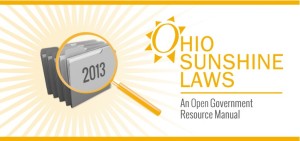My love affair with public records

This is the second in a week-long series of essays written by Watchdog.org reporters to commemorate Sunshine Week.
By Maggie Thurber | for Ohio Watchdog
I still remember that first day and how nervous I was.
It was the spring of 1993 and I’d been asked to run for an office — the Clerk of Toledo Municipal Court.
Before I could decide, I needed some information. I’d researched the records the clerk was supposed to keep and knew which ones were public, and which ones weren’t.
It was my very first public records request. I tried to disguise my nervousness by being armed with the facts: specific sections of the Ohio Revised Code detailing the legal support for my request.
I boldly walked up to the clerk’s counter and made my request.
The records didn’t exist, I was told. At least, not in any form the public could examine or use. And that made me angry — angry enough to run for, and win, the office.
Throughout my time as the clerk, I became the go-to person on the public records law within our state association. After leaving office and becoming a blogger, that reputation continued as my love for the information and details available to every citizen grew deeper.
I’ve used public records to examine everything from emails and local spending to long-range planning documents and union contracts.
As our local school board tried to get more property tax levies approved by the voters, I requested, examined and reported on their financial status, financial audits, test scores, salaries and performance.That reporting, coupled with the advocacy of several local groups and a radio station, resulted in the defeat of a new levy request. The school board agreed to do a comprehensive performance audit to identify ways the district could save money.
The performance audit found $101 million in recommended savings over a five-year period.
That’s the impact of using public records to support your position.
Throughout the years, the public records law has changed, adding more exemptions, requiring training for elected officials and making it easier for people to use it to bring transparency to government.
A while back, the attorney general and auditor got together to publish the “Yellow Book” — a detailed, plain language explanation of the law and Ohio’s open meetings requirements. It’s yellow, in honor of its title, “The Sunshine Laws Manual,” and it’s free to anyone who requests it, in printed or electronic form.
Over the past 20 years, O.R.C 149.43 has been my constant companion, and its terms and mandates are as familiar to me as my own face.
The Ohio Supreme Court recently diluted it, removing a key enforcement component. Despite that ruling, I know we can still accomplish great things together.
The strength it once had may be diminished, but my love of public records, and the knowledge they give an ‘ordinary citizen,’ will never perish.
The post My love affair with public records appeared first on Watchdog.org.







